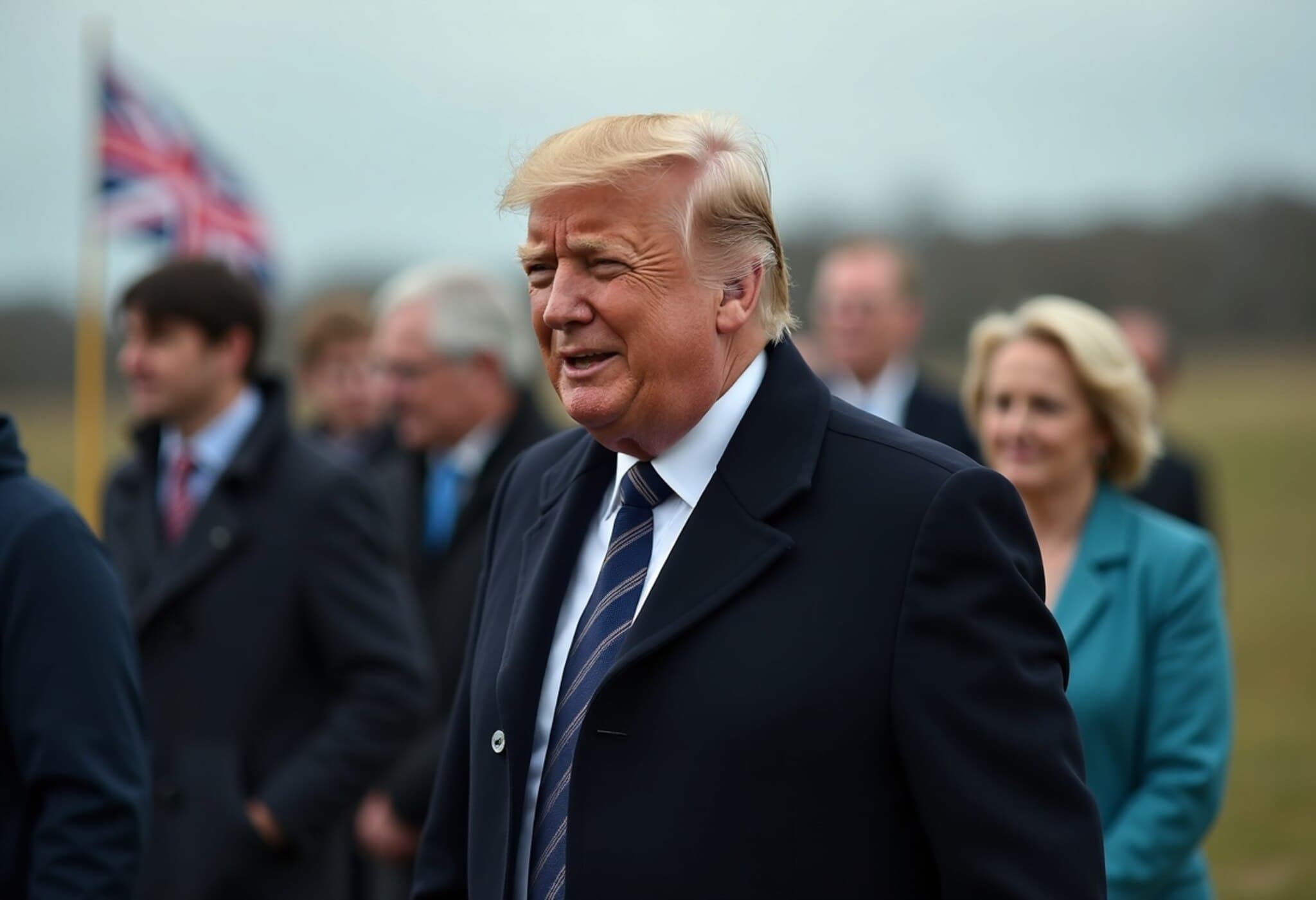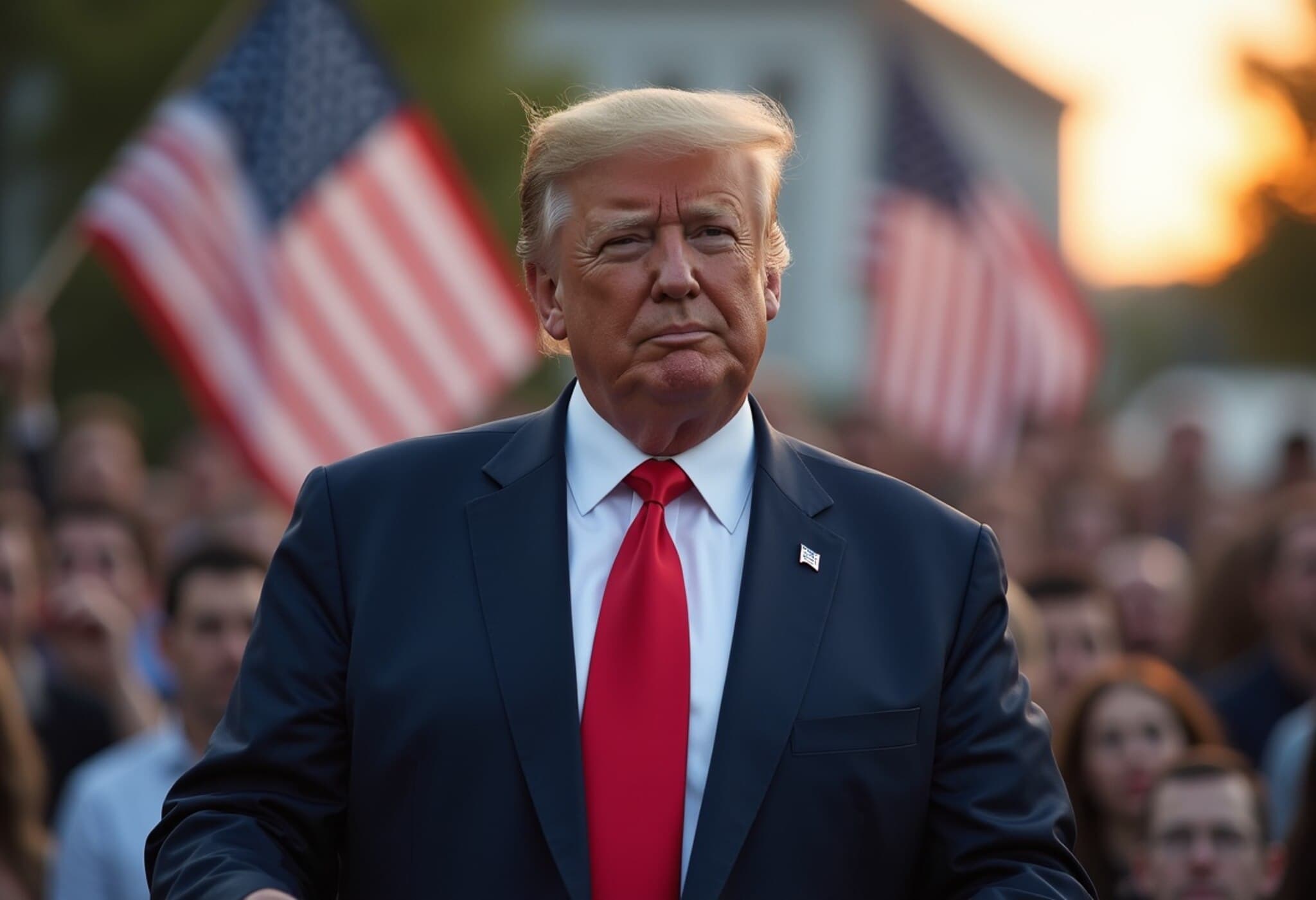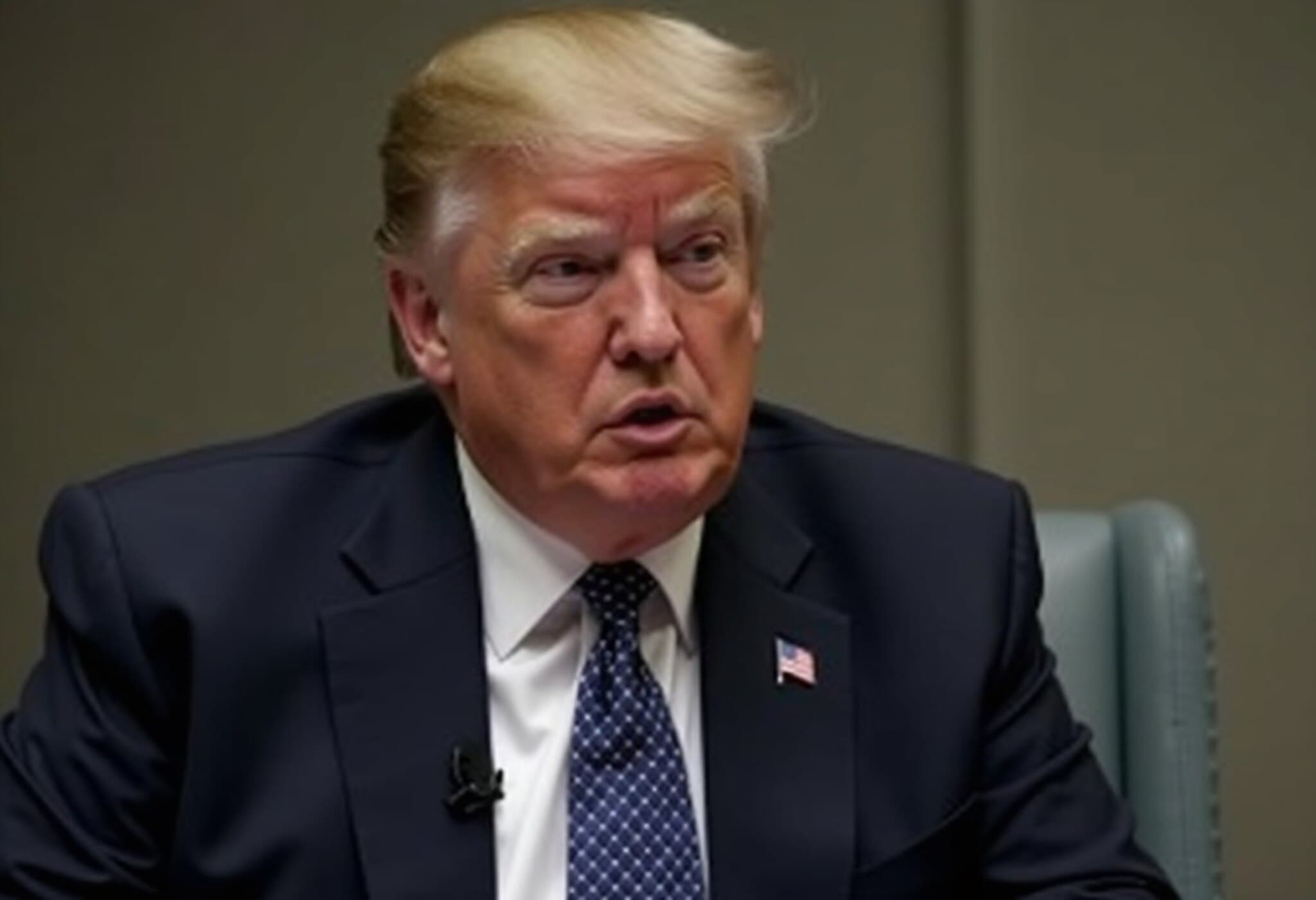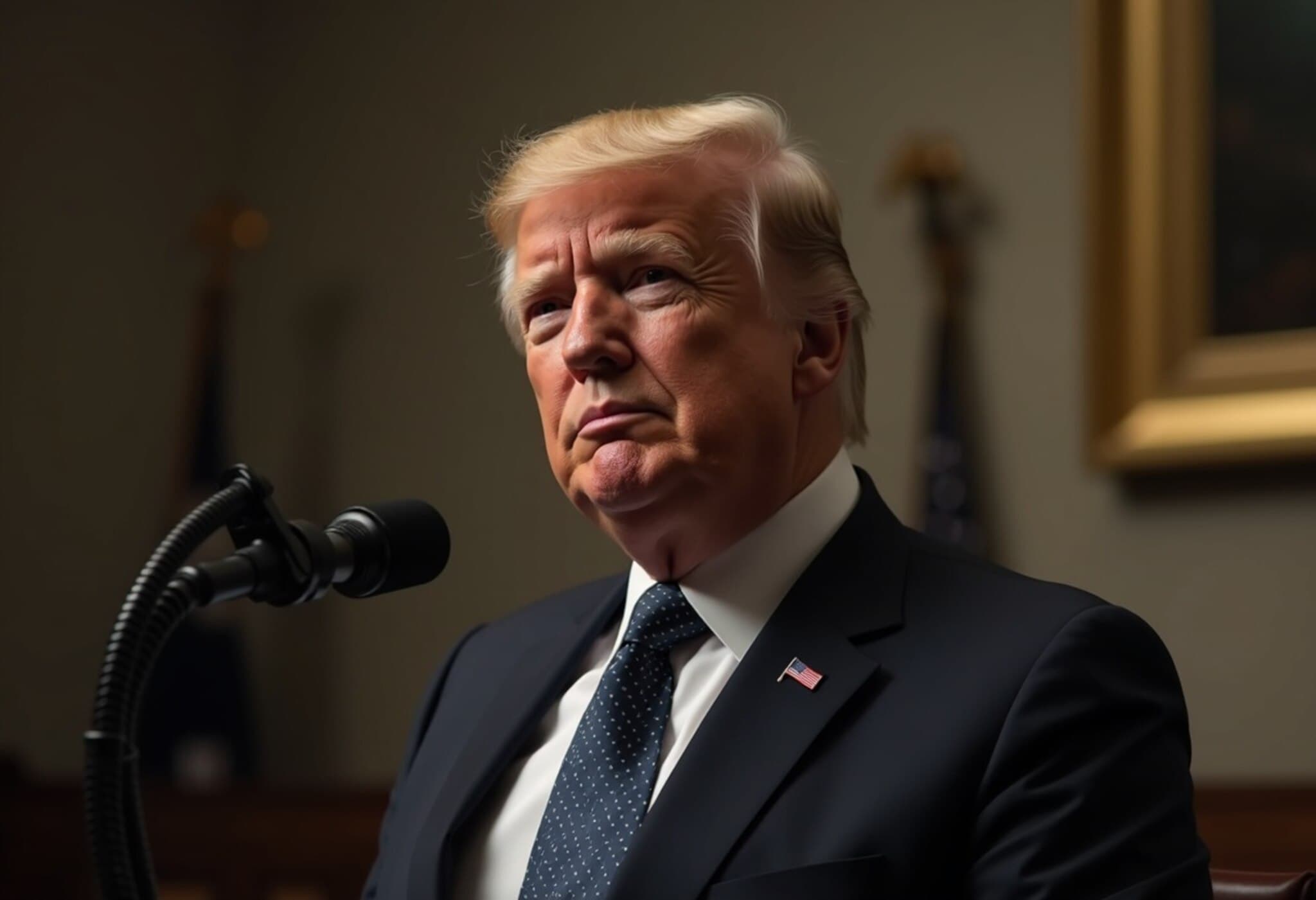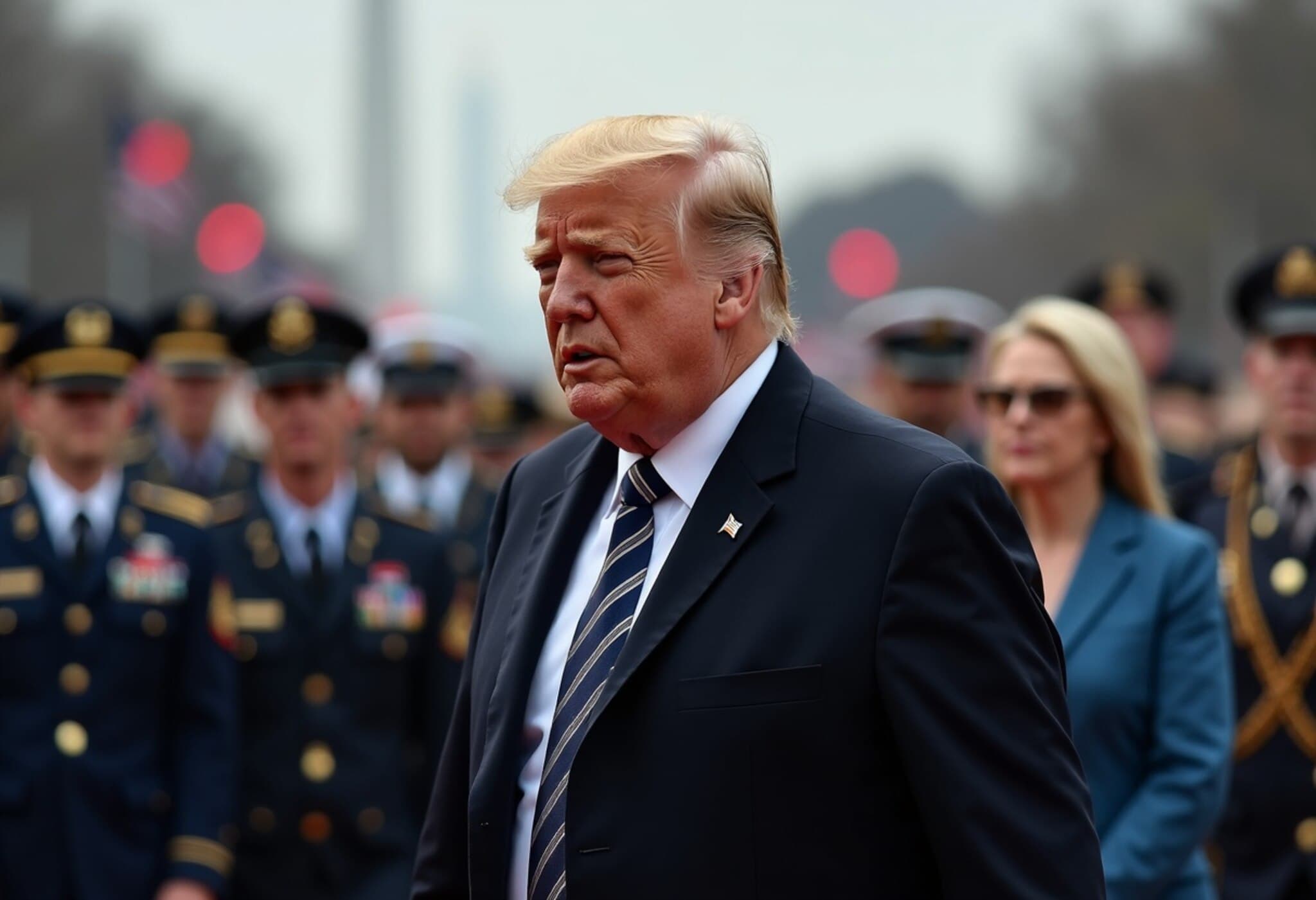Trump’s Scottish Visit Overshadowed by Protests and Pressing Controversies
On a balmy Saturday at his renowned Turnberry golf course in Scotland, former US President Donald Trump sought refuge in his favorite pastime: golf. Yet his day on the greens was far from peaceful, as protests erupted in Edinburgh and Aberdeen, blending Scottish slang with calls for accountability amid a swirl of controversies dogging him across the Atlantic.
A Visit Marked by Protest and Political Tension
Trump’s arrival in Scotland on Friday was met with an unmistakable buzz of dissent. Hundreds gathered in the Scottish capital’s streets, waving placards and chanting slogans that ranged from sharp critiques of his immigration policies to pointed references to his alleged connections with convicted sex offender Jeffrey Epstein. The protests didn’t just voice opposition; they carried the unmistakable flavor of local culture, with Scottish vernacular thrown into the mix as a form of spirited resistance.
Among the protesters was Edinburgh resident Cat Cutmore, who expressed profound concern about both international and domestic issues linked to Trump’s political stance. “Rolling out the red carpet for someone who has imprisoned asylum seekers in camps goes beyond politics—it’s complicity,” she stated, reflecting a sentiment shared by many in Scotland uneasy about hosting the former US leader.
Golf Amid Diplomatic Gambits and Trade Talks
While the protests unfolded, Trump maintained a relatively low profile, spending much of Saturday golfing at Turnberry with family members and US officials. Despite the security-perimeter limiting access, the optics suggested an attempt to blend leisure with diplomacy ahead of planned talks.
Trump’s itinerary also included meetings with key European figures such as UK Prime Minister Keir Starmer, Scottish Government leader John Swinney, and European Commission President Ursula von der Leyen. These engagements come at a pivotal time as the US and EU edge toward potential trade agreements. Notably, Von der Leyen, described by Trump as a “highly respected woman,” arrived in Scotland shortly before their scheduled discussions.
Persistent Questions Surround Epstein Ties and Migration Rhetoric
Despite efforts to steer conversations toward diplomatic priorities, Trump was repeatedly confronted with probing questions about his relations to Jeffrey Epstein, the disgraced financier who died by suicide in prison in 2019. Trump dismissed the media focus as exaggerated, emphasizing instead what he described as “the greatest six months in the history of a presidency.”
He also reiterated his stance on migration, warning of an ongoing “horrible invasion” threatening Europe, a view that aligns with the stricter immigration policies he has championed in the US. This rhetoric, however, has fueled significant opposition among human rights advocates and many European citizens who view such claims as inflammatory and lacking nuance.
Local Voices and Cultural Symbolism
Scottish voices took a particularly personal tack in their critique, pointing to Trump’s use of his mother’s heritage as a branding tool. The Aberdeen golf course, named after Mary Anne MacLeod—Trump’s mother and a Scottish immigrant—is central to this narrative. Edinburgh author Janet MacLeod Trotter expressed frustration that Trump was leveraging this familial link to legitimize his business interests and political persona abroad.
Meanwhile, international academics and residents like Gabriele Negro of the University of Edinburgh joined protests to underscore the global nature of political dissent, particularly around immigration and Middle East conflict issues.
Looking Ahead: Trade Hopes Amidst Lingering Divisions
As Trump’s visit draws to a close, the looming trade discussions between the US and the European Union carry significant weight for transatlantic economic relations. Both sides have expressed cautious optimism about striking a framework agreement, a development that could ease tensions exacerbated by years of policy divergence.
Yet, the strong public reaction in Scotland highlights the ongoing challenge for political figures operating on the global stage: balancing diplomatic objectives with the diverse, and often passionate, sentiments of local communities.
Editor’s Note
Donald Trump’s Scottish sojourn is more than a high-profile golf outing; it’s a microcosm of contemporary global challenges—migration, justice, and the complex interplay between local identities and international diplomacy. As trade talks unfold, questions remain about how leaders reconcile economic ambitions with ethical accountability and public sentiment. For readers, this visit prompts reflection on the multifaceted roles political figures play, especially when their personal legacies intertwine with wider social struggles.

